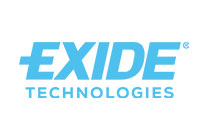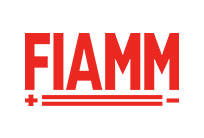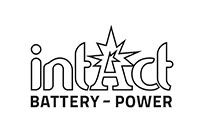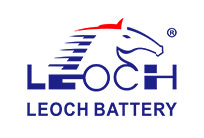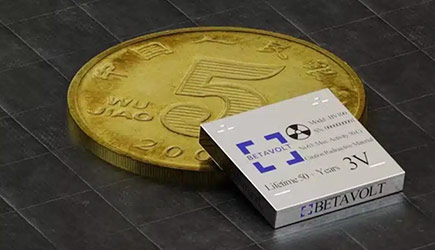
50 years without recharging? Chinese start-up presents revolutionary battery
The Chinese start-up Betavolt has developed a battery with the perfect characteristics: a compact form with high performance. The battery should be able to supply power for up to 50 years. But there is a catch.
A miniature nuclear battery from the Chinese company Betavolt, smaller than a coin, should be able to supply power for decades and thus revolutionize the battery market. According to the manufacturer, the first prototype - the BV100 - delivers around 100 microwatts of electricity at a 3-volt voltage. The start-up relies on a combination of nickel-63 isotopes and diamond semiconductors. The radioactive nickel-63 isotope decays into stable copper over its half-life, with the energy released during decay being converted into electricity via the battery's diamond semiconductor module.
However, the technology that enables the battery to have such a long service life has one disadvantage: its radioactivity. Although Betavolt itself emphasizes that the radiation from the battery cannot penetrate to the outside and that the battery is therefore absolutely safe, in this country the Radiation Protection Ordinance would make comprehensive approval difficult due to these risks. In an interview with heise, Helge Kröger from the Federal Office for Radiation Protection pointed out the risks and regulations involved in the use of radioactive substances in consumer products. Due to the amount of nickel-63 alone, which exceeds the exemption limit, the chances of success for approval in Germany are currently rather unrealistic.
Betavolt's far-reaching visions
The first applications of Betavolt's battery are expected to be in smaller devices such as sensors or smartphones. The first 1-watt version is expected to come onto the market as early as 2025. If the technology proves successful, smartphones or drones, for example, will rarely or never need to be recharged in future. It would also be conceivable to use this type of battery in the medical sector, for example in implants. For larger applications, for example in e-bikes, several modules would have to be combined to provide larger amounts of energy.
The new batteries from Betavolt have the potential to fundamentally change the battery market and usher in a new era of energy storage. The development shows the potential this holds, but it remains to be seen how the technology will be received and approved globally.
Image: Betavolt
Sources: ebike-news.de, Simon Stich, 23.10.2024
netzwoche.ch, Zoe Wiss and jor, 28.01.2024
watson.ch, Watson, 19.01.2024
heise.de, Dr. Volker Zota, 19.01.2024




